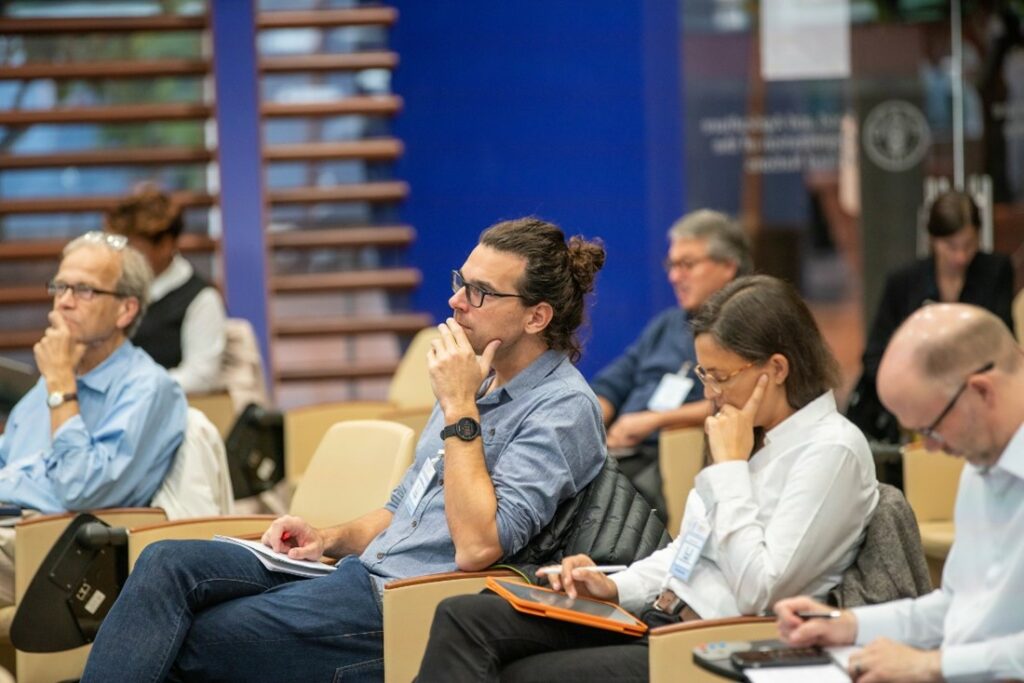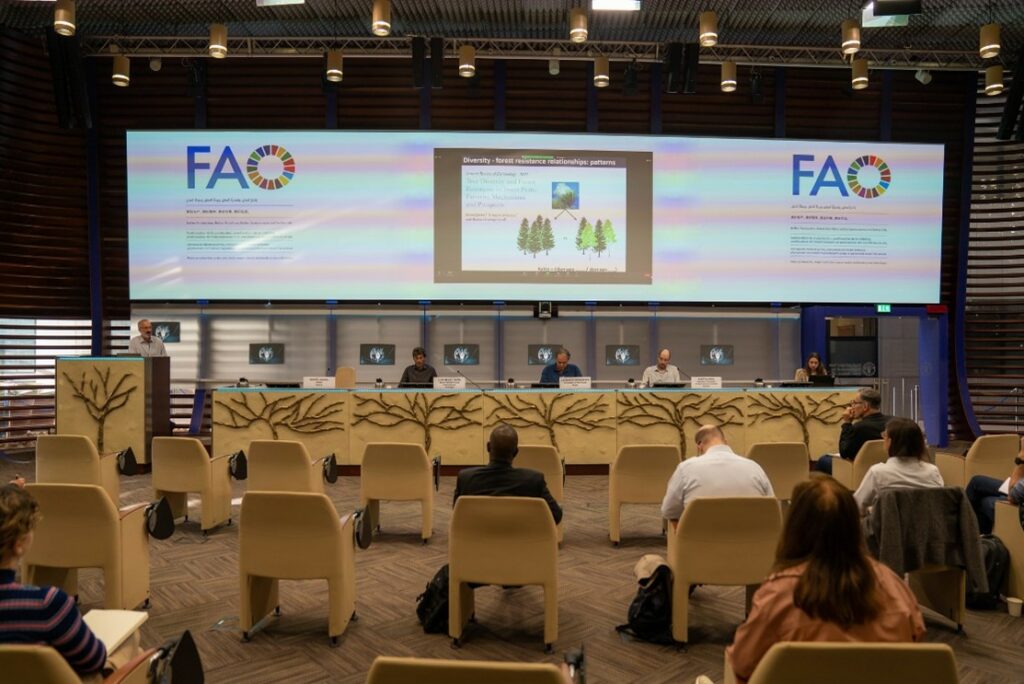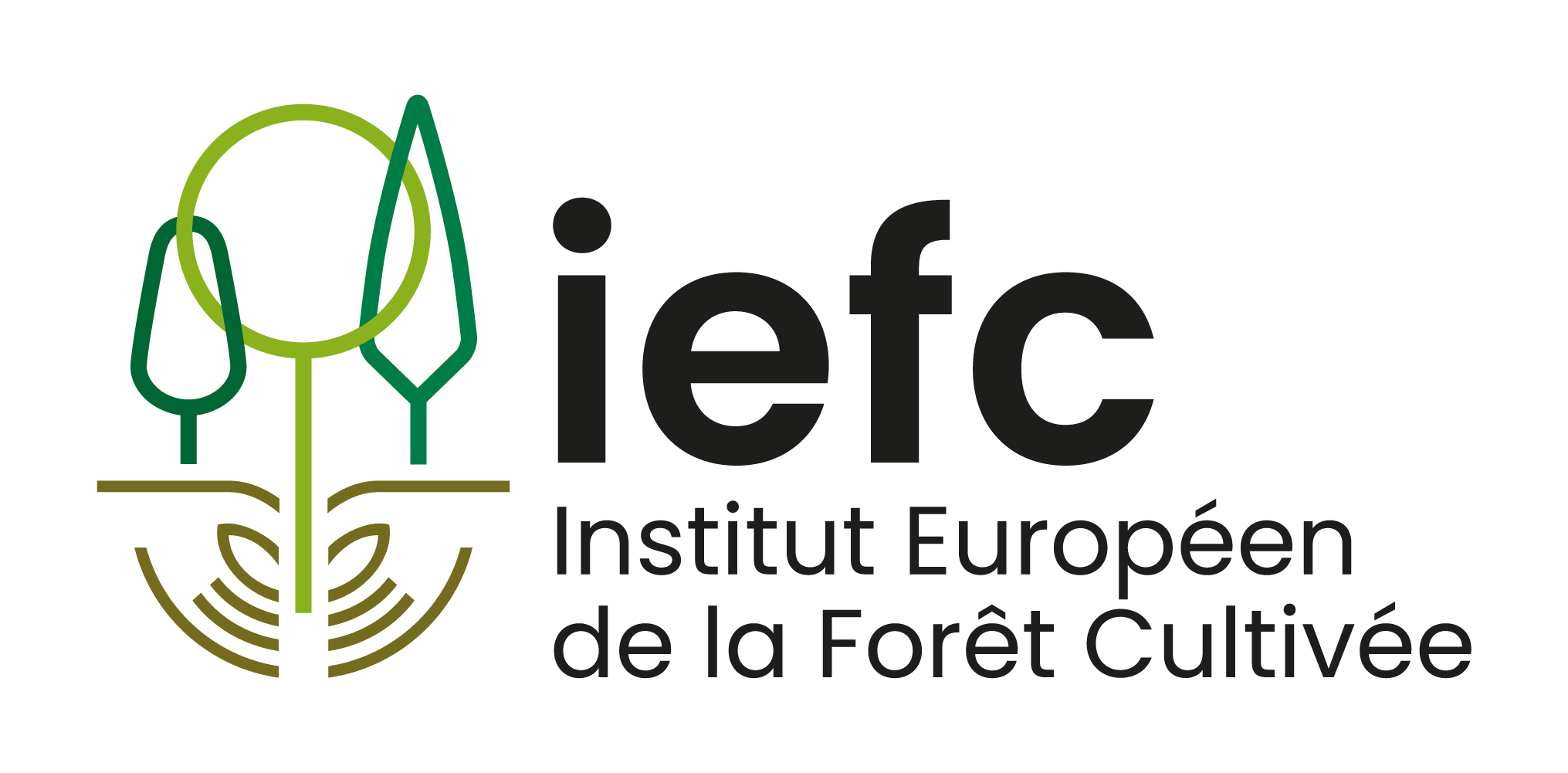Meeting facts:
– Meeting title, date and place: “Management of mixed and pure planted forests: Stock-taking of science and practice”, 29 and 30 September 2022, FAO headquarters, Rome (Italy)
– IUFRO unit involved and sponsoring organizations: IUFRO Taskforce “Resilient planted forests serving society & bioeconomy”, workshop organized by the Food and Agriculture Organization (FAO), the TreeDivNet network, and the International Commission on Poplars and Other Fast-Growing Trees Sustaining People and the Environment (IPC)
– Number of participants: 35
– Represented countries: participants coming from14 countries (Argentina, Australia, Belgium, Brazil, France, Germany, Italy, Madagascar, Poland, Portugal, Sweden, Switzerland, Uganda, USA) to attend the event in person.

Contents:
More diverse planted forests can meet broader societal goals by enhancing resilience and ecosystem services compared to monoculture plantations. However, there is often a gap in the information, experience, and genetic material necessary to implement mixed-species planted forests at scale.
To address this knowledge gap, FAO[1], the TreeDivNet network, and the IPC[2] organized a workshop aimed at reviewing the state of the art in the management of mixed and pure planted forests. The workshop contributed to the Cambio and MixForChange projects, and was hosted under the IUFRO TaskForce “Resilient planted forests serving society & bioeconomy”. The workshop gathered 35 participants from across the globe at FAO headquarters, Rome, Italy and included a panel discussion that brought together country representatives from Argentina, Italy, Madagascar, Uganda, and the United States of America.
According to FAO’s Global Forest Resources Assessment, the area of planted forests has increased by 72% since 1990, from 170 million hectares to 293 million hectares in 2020. As the role of sustainable wood in meeting environmental and socioeconomic objectives is increasingly recognized, demand for sustainable wood is likely to expand and be met through planted forests. The urgent need to restore degraded land globally also demands consideration of the role of planted forests.
Globally distributed mixed-species experiments associated to TreeDivNet provide scientific evidence for increased resilience and ecosystem service provision of mixed-species planted forests compared to monospecific ones. Increasing tree species richness is associated with increasing multifunctionality, biodiversity and productivity. Mixtures are also important to spread risks, which is especially relevant as climate change is likely to significantly increase abiotic and biotic threats to planted forests.

The rising demand for renewable materials and for nature-based solutions to address climate change challenges present both opportunities and risks for forestry investments. More diverse planted forests can offer attractive options for landholders, including smallholders, to invest in forestry. The potential for more mixed planted forests increases with the increasing importance of marketable ecosystem services other than timber production.
However, the wide implementation of diverse planted forests requires easy, practical guidelines to overcome operational complexity. There is a great mismatch between the availability of research results and technologies and their adoption by rural producers, especially on small and medium-sized properties. To enable the expansion of mixed plantations, they need to be perceived as technically sound, economically viable, and socially acceptable.
Participants agreed on a roadmap aimed at launching a joint publication in November 2023 at the International Congress on Planted Forests (ICPF2023), to contribute to bridging the gap between science and practice on the topic of mixed species planted forests.
Access full report of the workshop HERE.
[1] Food and Agriculture Organization of the United Nations
[2] International Commission on Poplars and Other Fast-Growing Trees Sustaining People and the Environment
Credits: FAO

